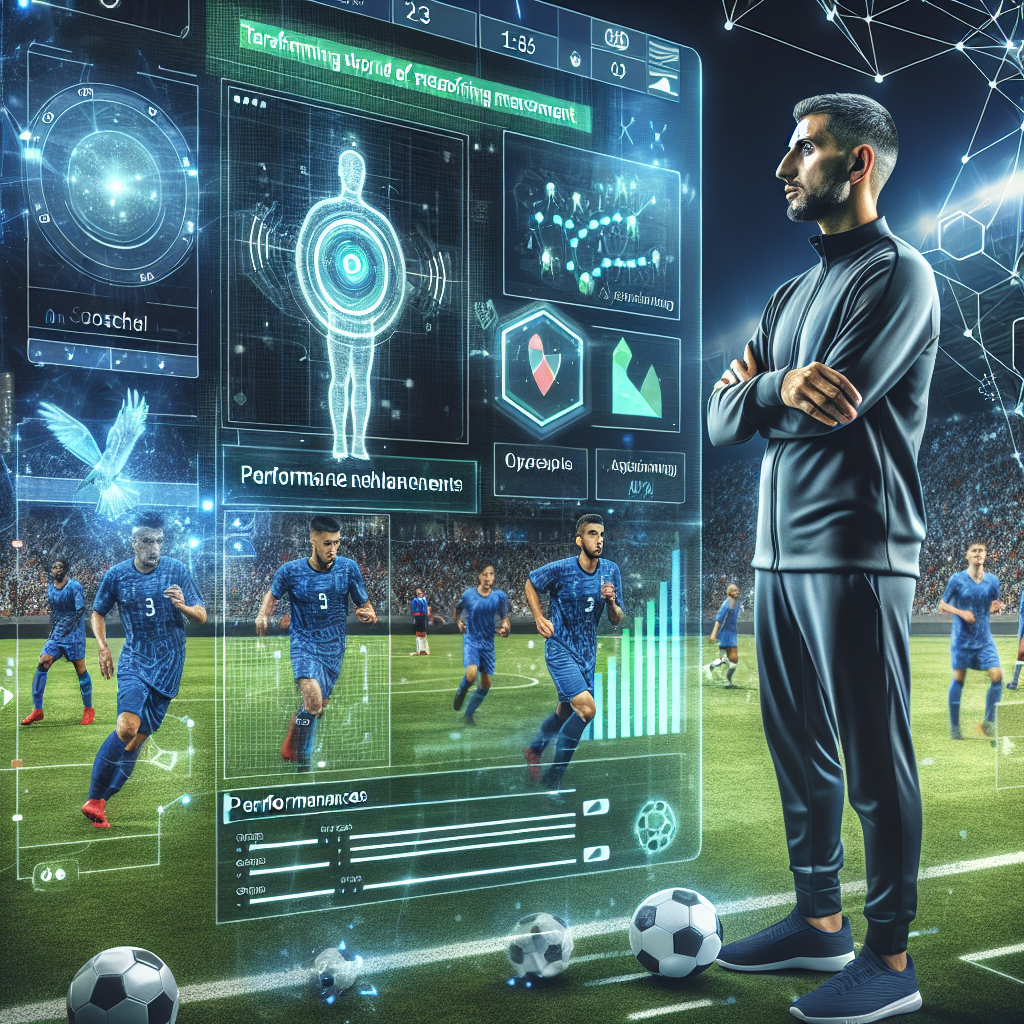Artificial Intelligence (AI) is revolutionizing every industry, and sports coaching is no exception. AI technology is changing the way coaches analyze data, predict outcomes, and develop strategies to help athletes reach their full potential. From advanced data analytics to personalized training programs, AI is transforming the world of sports coaching in ways that were once unimaginable.
One of the key ways AI is revolutionizing coaching in sports is through the use of data analytics. AI algorithms can process massive amounts of data in real-time, allowing coaches to gain insights into their athletes’ performance like never before. By analyzing data from sensors, wearables, and video footage, coaches can identify patterns, trends, and areas for improvement that may have been overlooked using traditional methods.
For example, AI can analyze an athlete’s running gait to detect inefficiencies and suggest corrective exercises to improve performance. It can also track an athlete’s heart rate, sleep patterns, and nutrition to optimize recovery and prevent injuries. By leveraging AI-powered data analytics, coaches can make more informed decisions and tailor training programs to meet the unique needs of each athlete.
Another way AI is revolutionizing coaching in sports is through the use of predictive analytics. AI algorithms can analyze historical data, performance metrics, and game footage to predict future outcomes and trends. Coaches can use these predictions to develop game strategies, adjust training programs, and make informed decisions in real-time.
For example, AI can analyze an opponent’s playing style and tendencies to help coaches develop a game plan that maximizes their team’s strengths and exploits their weaknesses. AI can also predict the likelihood of injuries based on an athlete’s workload and recovery metrics, allowing coaches to adjust training programs to reduce the risk of injury.
In addition to data analytics and predictive analytics, AI is also revolutionizing coaching in sports through the use of virtual simulations and augmented reality. Coaches can use AI-powered simulations to recreate game scenarios, analyze player movements, and test different strategies in a virtual environment. This allows coaches to experiment with new tactics, evaluate player performance, and make adjustments without the need for live practice sessions.
Augmented reality technology can also enhance coaching by providing real-time feedback and visualizations to athletes during training sessions. Coaches can use AR headsets to overlay performance metrics, instructions, and virtual markers onto the athlete’s field of view, allowing them to make immediate corrections and adjustments.
One of the most significant benefits of AI in sports coaching is the ability to personalize training programs for each athlete. AI algorithms can analyze an athlete’s biomechanics, physiology, and performance data to create personalized training plans that address their specific needs and goals. This level of personalization can help athletes maximize their potential, prevent injuries, and achieve peak performance.
FAQs:
Q: How is AI being used in scouting and recruitment in sports?
A: AI is being used in scouting and recruitment in sports to analyze player performance metrics, track player development, and identify potential recruits. AI algorithms can analyze game footage, statistics, and player profiles to evaluate skills, strengths, and weaknesses. This allows coaches and recruiters to make informed decisions about which players to recruit and how to develop their talent.
Q: Can AI replace human coaches in sports?
A: While AI technology is advancing rapidly, it is unlikely to replace human coaches entirely. AI can provide valuable insights, analysis, and support to coaches, but human coaches bring a level of intuition, experience, and emotional intelligence that AI cannot replicate. The most effective approach is likely a combination of AI technology and human coaching expertise.
Q: How can athletes benefit from AI-powered coaching?
A: Athletes can benefit from AI-powered coaching by receiving personalized training programs, real-time feedback, and performance analytics that help them improve their skills, prevent injuries, and optimize their performance. AI technology can help athletes reach their full potential by identifying areas for improvement, tracking progress, and tailoring training programs to meet their individual needs.
In conclusion, AI is revolutionizing coaching in sports by providing coaches with advanced data analytics, predictive analytics, virtual simulations, augmented reality, and personalized training programs. These AI-powered tools are helping coaches make more informed decisions, develop innovative strategies, and optimize performance for athletes. While AI technology is not likely to replace human coaches entirely, it is enhancing the coaching experience and helping athletes achieve their full potential in ways that were once unimaginable.

